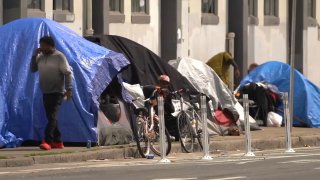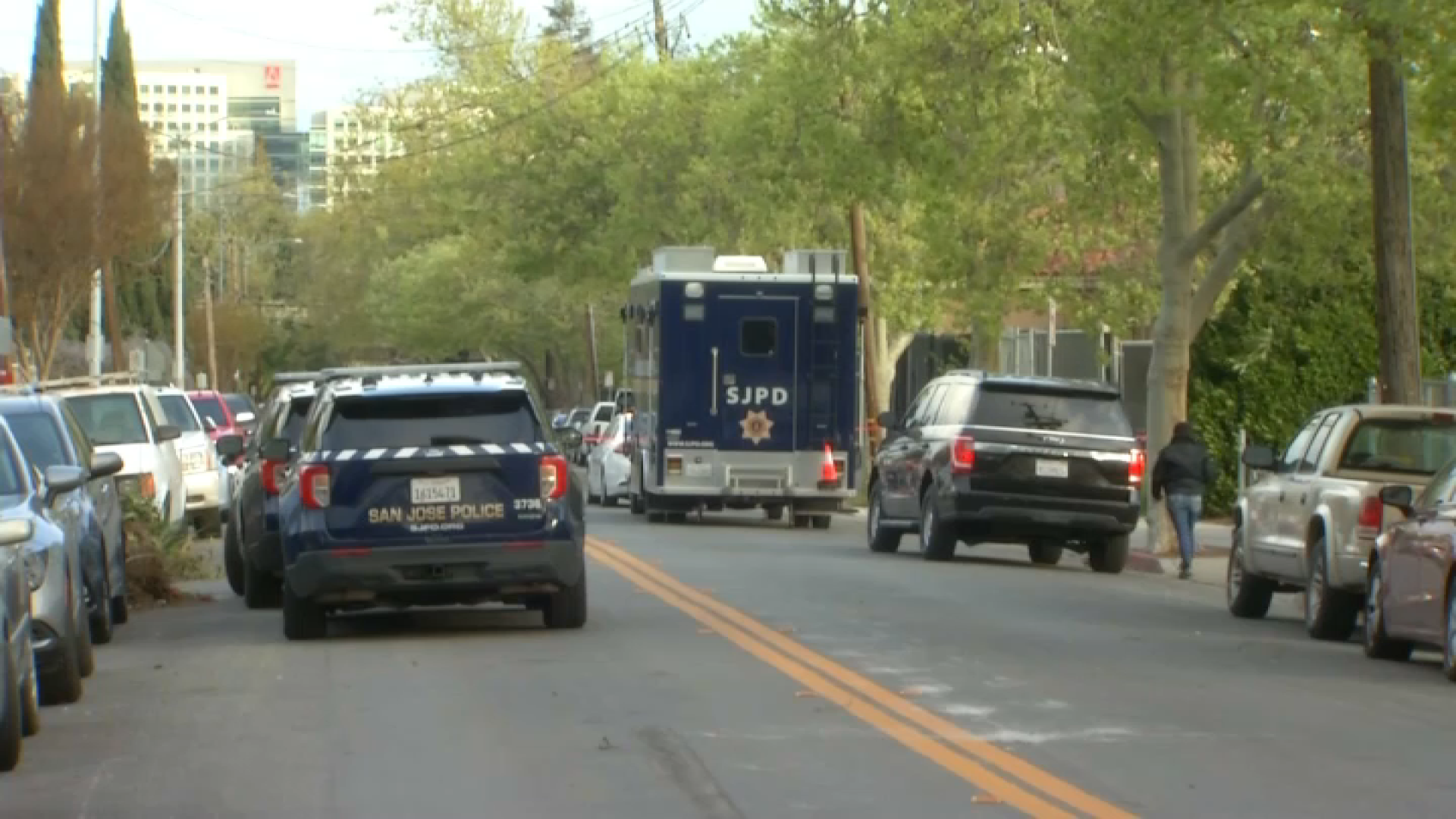
San Francisco is paying $16.1 million to feed and house people in tent villages as the city struggles with a swelling homeless population. But the cost worries some lawmakers.
Six tent sites dubbed “safe sleeping villages" have been set up since the start of the coronavirus pandemic to shelter people who might otherwise sleep on the sidewalks.
The 262 tents currently house more than 300 people, with some vacancies. The villages also provide access to bathrooms, meals and 24-hour security, the San Francisco Chronicle reported Thursday.
The funding is only a fraction of the more than $300 million the city spends annually on homeless services, and the average cost per night is less than what the city pays under a program to shelter homeless people in hotels, the Chronicle said.
But the tent program isn't eligible for federal reimbursement. Some lawmakers say the program is too expensive, especially when the city is facing a projected $650 million budget deficit over the next two years.
“It’s eye-popping, and we need to understand why that is,” Supervisor Rafael Mandelman said. “We have to find a way to have exits from the streets. But we need them to be more cost-effective."
The program is funded by state and city money and revenue from a 2018 business tax.
Local
The city had to rush to create shelter sites as indoor facilities for the homeless closed because of COVID-19 concerns, Abigail Stewart-Kahn, interim director of the homeless department, said at a budget committee hearing Wednesday.
The city didn't have time to do a more thorough contract bidding process and also needed to provide water and electrical hookups for the sites, which are located on empty lots, Stewart-Kahn said.
Get a weekly recap of the latest San Francisco Bay Area housing news. Sign up for NBC Bay Area’s Housing Deconstructed newsletter.
“I understand the motivation to create (safe) sleeping space during this COVID-19 crisis,” Supervisor Ahsha Safaí said. “But we really need to dive deep to see if this a sustainable model ... without any federal reimbursement.”
Stewart-Kahn said her department is analyzing the program.



